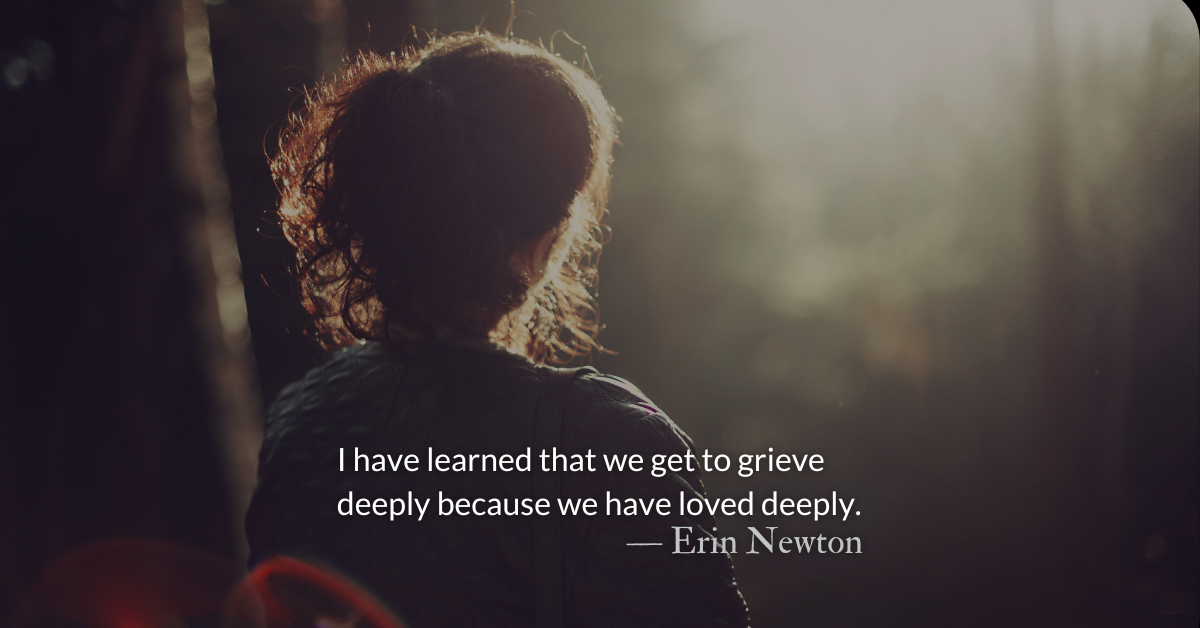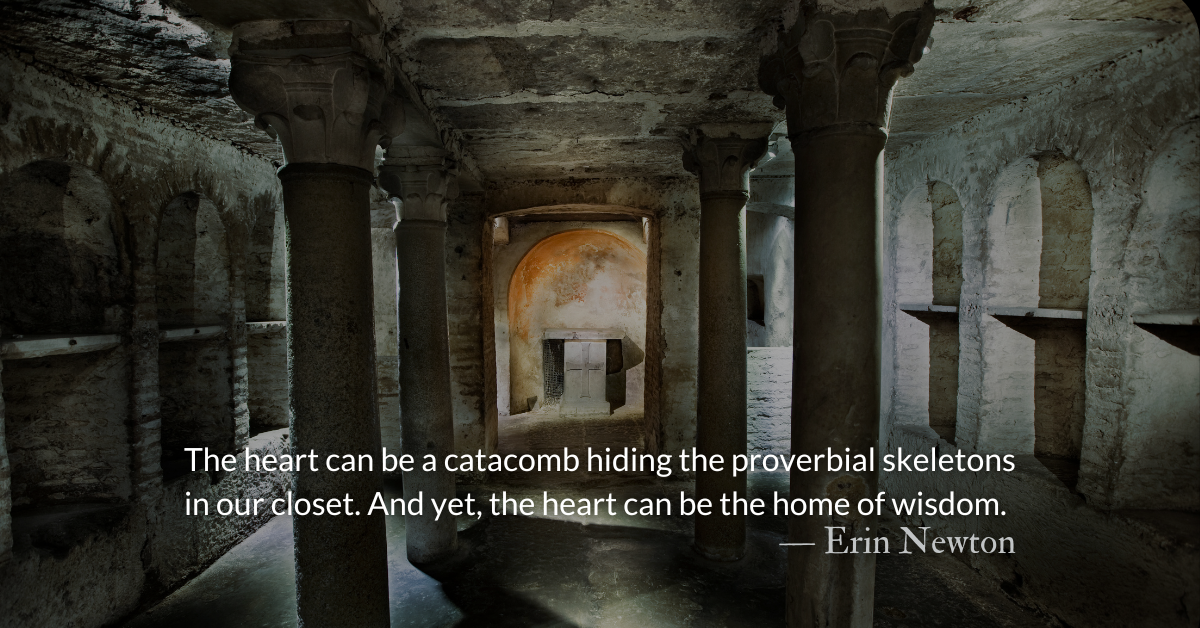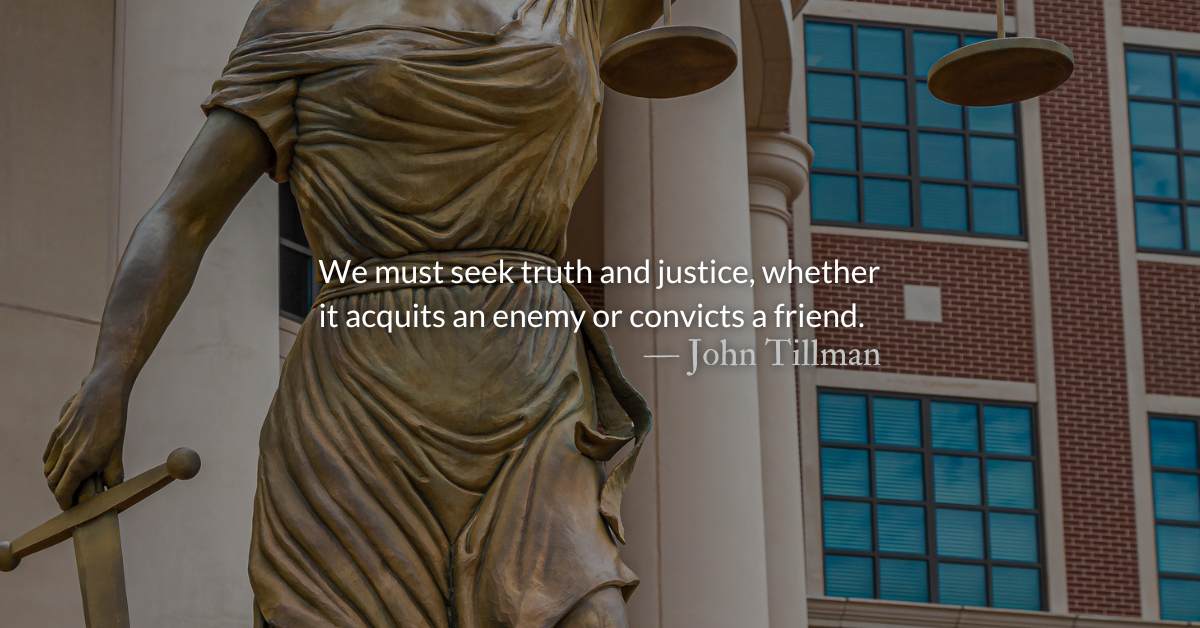Scripture Focus: Psalm 34.18
18 The Lord is close to the brokenhearted
and saves those who are crushed in spirit.
Reflection: Be With Me
By Erin Newton
In the kingdom of the heavens, no suffering is unknown;
each tear that falls is holy, each breaking heart a throne.
There is a song of beauty on every weeping eye —
for there is One who loves me: His heart, it breaks with mine
These words, which bring me to tears every time, are from the song “Little Things with Great Love” by Porter’s Gate.
At the end of this summer, just a few weeks ago, my mother died. For six years, I limped along this journey of anticipated grief, knowing that her cancer was incurable. I became accustomed to sadness. It was simply a part of my life.
Many of us carry the weight of grief, pain, suffering, trauma—all sorts of sadness—with us every day. Instead of a passing feeling, it becomes a state of being. Grief is an unwelcome guest that lingers too long and too close.
Psalm 34 speaks of deliverance from fear and salvation from troubles. It was the plea of my anguished heart. I like to avoid sadness. Bottling up emotions, avoiding all sad movies, and never lingering too long on tragic events—this was my way of living.
Now I have learned that we get to grieve deeply because we have loved deeply. The weight of our sadness reflects the hope of a beautiful life that has been tragically altered.
What is never mentioned in the psalm is the absence of trouble. It is not praising God for a carefree life. As much as I want to escape heartache, suffering is part of living.
But we are not alone. God is near to the brokenhearted, the completely broken and crushed soul.
In the last days of my mom’s life, I would step out of the car and take a deep breath. I had to go in there and sit by her bed, counting breaths as they labored and slowed. I knew I had to go inside. There was no choice. “Dear Lord, can you go in there with me?” And he did.
I have known the depths of pain, but I have felt the strength of God’s presence. My mom could hear songs “like a choir” and felt an unseen hand rest upon her shoulder. God is near to us.
If there is any way I could talk to my mom now, I’d let her know I’m doing okay. Because I’ll never be alone.
Music: “Little Things with Great Love,” by Porter’s Gate
Divine Hours Prayer: The Request for Presence
…come to me speedily, O God. You are my helper and deliverer; O Lord, do not tarry. — Psalm 70.5-6
– From The Divine Hours: Prayers for Summertime by Phyllis Tickle.
Today’s Readings
1 Kings 14 (Listen 5:22)
Psalms 34 (Listen 2:14)
Read more about In the Face of Grief
None of Christ’s followers had to leave their sorrow behind for Jesus to come to them.
Read more about The Grace of Holding Space
What is most needed in these times is a willingness to simply “hold space” for another.











